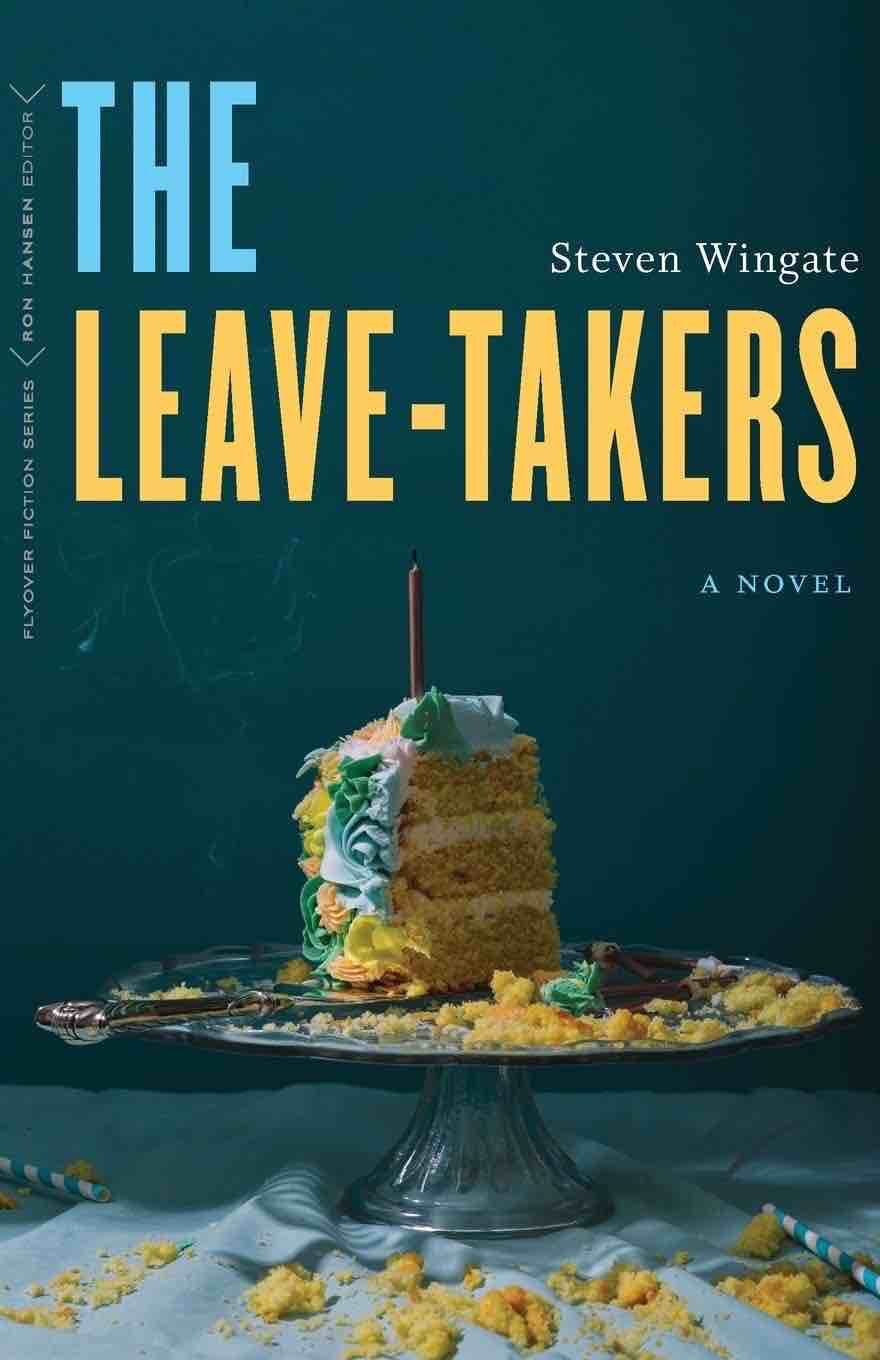The Leave-Takers, by Steven Wingate
This beautifully written novel looks into a void in two lives, and follows two difficult journey’s back from nothingness.
The Leave-Takers is a novel sometimes hard to put down and often hard to resume reading. It follows the struggles of two pill-taking addicts confronting their addictions, suffering the deaths of family members, and managing the heartbreaking failures of maintaining their own relationship. The pathos experienced by them is very hard to bear at times. The reader wants to believe that their stars with one day align and the disappointments will stop. But hopes are dashed time and again. Whether or not a resolution will ultimately occur is always uncertain.
The imagery in the novel is brilliant. The void is likened by Jacob to a “road sign with no lettering, a clear sheet of plastic, a blank sheet of paper.” After Laynie arrives in South Dakota she compares herself to the winter landscape at the Cocklebur Farm, thinking, “Her old self barely clung to life. Here she could drag it up from the ground, rebuild it, rehabilitate it.” At one point, Laynie struggles not with answers but with her inability even to find a question to guide her about what to do with herself. The question wasn’t “something about peace and purposefulness, balance and dignity and the fluid, relinquishing ease that she’d never found in herself but knew had to be living somewhere beneath her crust of grief and mourning.” Sadly, whatever the question may be, it is never answered.
The dead help tell the stories of the two protagonists, Jacob and Laynie. The dead protagonists are Jacob’s brother, Daniel, and Laynie’s father, William Jackman. A significant part of the story involves a journey to leave behind personal possessions of these dead protagonists in an uncertain attempt, perhaps, by Laynie and Jacob to rid themselves of the components of their mourning that keep bringing them back to popping pills. There is clever allegory here. The two of them, by dispensing with items like Daniel’s guitar or William’s shaving kit are in fact confronting “their deepest addiction” of making the dead live again. The idea is that “Once they buried the dead, the pills would follow.” But an addict’s life is full of such devices of rationalization. They are as futile as the changing of Laynie’s name to Alanya in order to insure she will bear a healthy baby. It is all a part of a brutal reality that Steven Wingate so masterfully presents.
High praise is certainly in order for this novel, and several authors have bestowed it in their publicity commentary. But some of them do the novel a disservice with their optimistically bent adornments. What is laudatory about this book is its depiction of addiction as a desperate struggle. It rarely ends well. Alanya and Jacob are not fairy tale characters who overcome adversity to reach a rainbow. There is no rainbow in Leave-Takers, no love song, no perseverance, and no regeneration. For the most part, hard luck and addiction bring with them a lament of meaninglessness. Steven Wingate dramatically portrays the ugly truths his characters must accommodate. At the end there are still cockleburs clinging to the hard earth.
For more information about the author of this novel click on the author’s name.
